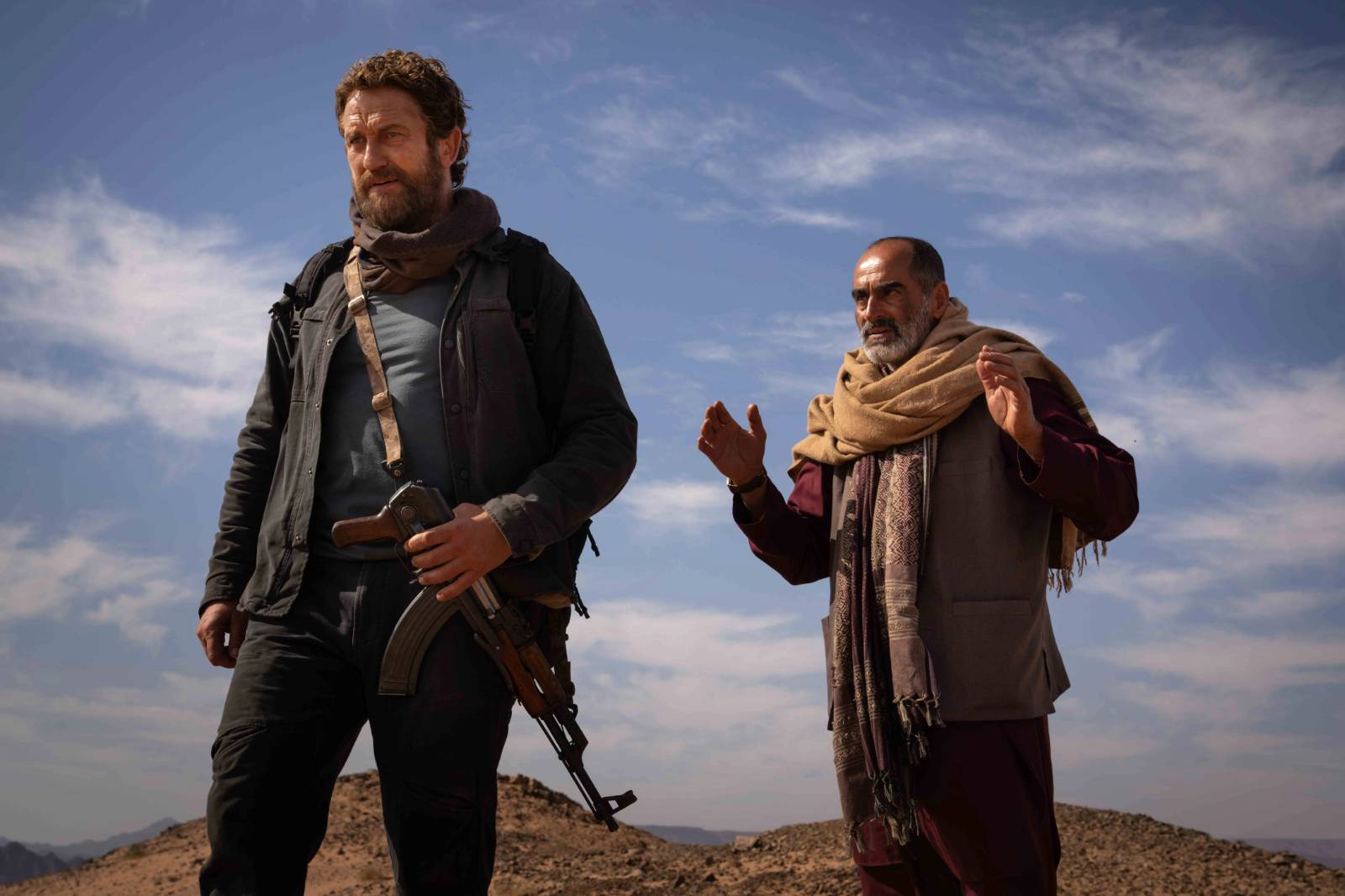With this past January’s Plane and now Kandahar, B-movie mainstay Gerard Butler has officially entered his Sad Dad era, a key scene in this new film being him wandering around the gift shop of the Dubai airport helplessly sorting through anonymous items to greet his teen daughter with. But being plopped in the middle of a political thriller instead of strict shoot ‘em up doesn’t necessarily leave as many opportunities for the star-as-auteur to shine.
There’s certainly some unintentional comedy in the film’s opening of him posing as a telecommunications man to infiltrate precious Iranian territory. As the excitingly named Tom Harris, Butler plays an agent of American intelligence, despite not hiding his thick Scottish brogue. Here’s the opening story with a very straight face: a control room of white men applauding the destruction of an Iranian nuclear facility, followed by a shot of Butler dwarfed by the ensuing smoke, alluding to a potentially more left-wing take than expected. Despite acknowledging the tension between the West and Middle East as a never-ending nightmarish quagmire, Kandahar doesn’t quite go far enough. Even though Butler’s category of film is, perhaps uncharitably to say, usually targeting a more “red meat” audience, his latest is located in the sweet center and plays both sides. Certainly the sight of a hanged man greeting Tom on his nighttime drive into the “new,” post-pullout Afghanistan is catnip for the Jake Tapper crowd. You can maybe use the excuse “well, I mean c’mon it’s a Gerard Butler action movie,” but the relatively more serious tone (trying to be a “good” movie more than usual for the star) makes it at least a little prone to such criticism.
But we can temporarily forget about our political predilections once the plot gets going. Things soon turn haywire for Tom as he and his fellow C.I.A. operative have their identities leaked by a whistleblower who claims her reveal will “be bigger than Snowden and WikiLeaks combined.” Having just accepted “one last job” in Afghanistan because he can’t resist the money, Tom is suddenly on the run alongside his translator (Navid Negahban) from a number of different assassins who span a number of Middle Eastern countries.
A bit of an underdeveloped buddy picture plays out between the chases and gunshots: as family men of a different ilk, Tom and the translator find similarities despite their very different backgrounds. Yet a speech (or rather confession) from Tom in the third act about the West’s arrogance and recklessness to his partner comes off as a transparent attempt to add a little plausible deniability to any reactionary leanings falls flat and reeks of condescension.
That said, Kandahar’s a moderately engaging programmer once things do kick into high gear, by which points its murky moral stance won’t nag at the viewer too badly. Butler’s frequent collaborator Ric Roman Waugh has at least churned out a classier picture here than, ahem, Angel Has Fallen. The film is not overly reliant on hand-held grittiness or a dingy color grade and moves along at a steady clip. The two big action sequences––a stylish night-vision goggle shoot-out and a broad-daylight climax full of explosions and flipping trucks––are both thrilling, old-school filmmaking.
Yet the odd sentimentality of Kandahar’s final minutes is a sour note to end on, not to mention a certain change of conscience within the American intelligence control room that’s not particularly believable. That Kandahar’s geopolitical ambiguity isn’t the richest is maybe to be expected, but paired with lame character dynamics, it sadly sells short the potential of Butler’s weary face under duress, something I’ll nonetheless keep returning to.
Kandahar opens in theaters on May 26.

